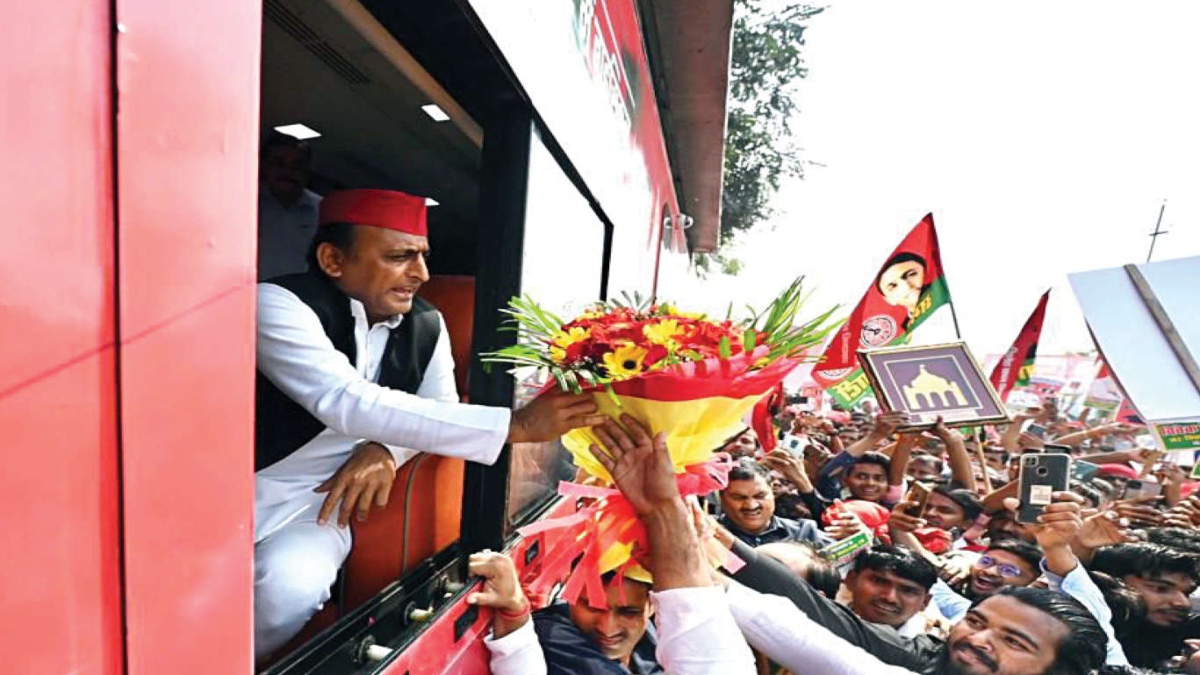


It is a sad day for India when political parties start believing that invoking Mohammad Ali Jinnah will get them the vote of the minority community. What else explains Samajwadi Party chief Akhilesh Yadav’s sudden love for Jinnah, when, at a recent rally he said that Jinnah, along with Gandhi, Nehru and Patel got independence for India? He reiterated his stand on Sunday by urging those criticising him for his statement, to “read history books”. It is not known which history book Akhilesh Yadav read, but the books that the rest of us read did not mention Jinnah as the man who got India independence, but as someone who worked with the British to partition India—the man who ingrained the two-nation theory in the minds of his countrymen to such an extent that 75 years later, in 2021, their descendants, instead of growing up believing in inclusivity and universal values, justify their own existence as a sovereign country by parroting Jinnah’s line that Hindus and Muslims are separate nations and can never live in harmony. This is ironic, considering that the majority of Indian
Muslims showed their disdain for Jinnah’s two-nation theory by staying back in India post Partition. By praising Jinnah, is Akhilesh Yadav also praising the two-nation theory? The problem is the thought process, where a modern-day “young” politician thinks that praising Jinnah will make the minority community happy because the Pakistani leader was their co-religionist and by implication they endorse what he stood for. Could there be a graver injustice to any community, where they are painted as the “other” and aspersions are cast on their loyalty to the country, and they are made suspect in the eyes of the majority? This plays into the hands of Pakistanis like Sheikh Rashid, who make outrageous statements such as Indian Muslims are happy that Pakistan defeated India in the cricket T20 World Cup.
The Akhilesh incident reminded one of Lalu Prasad Yadav addressing rallies in minority dominated areas with an Osama Bin Laden lookalike next to him ahead of the 2005 Assembly elections in Bihar. This was post the 9/11 attacks and by 2005 the hunt for Bin Laden was going on in full swing. But that did not stop Lalu Yadav, apparently one of India’s biggest “secular” politicians, to identify one of history’s most dreaded terrorists with a particular community. It was one of the most cynical attempts of appeasement that India has even seen, apart from being unfair to a community.
But then appeasement politics is a sword that cuts both ways. The more they try to “appease” in their own crude way, and try to consolidate a vote bank, the counter consolidation is also swift. This is one of the reasons why the SP has lost ground in Uttar Pradesh, and even Lalu Yadav’s Rashtriya Janata Dal in Bihar to a large extent. Also, no attempt has been made either by SP or RJD to rise above identity politics and work for the uplift of even the community they say they speak for. As the Rajinder Sachar committee report had shown in the 2000s, the condition of the minorities was worse than even Scheduled Castes and Scheduled Tribes—such was their neglect by successive, so-called secular governments, both at the national and state levels.
The world over, identity politics and vote banks are an intrinsic part of electoral democracy. There is no escaping them. The problem starts when development politics is forced to take a back seat and politics is made all about identity. From there the descent to the talk about Jinnah can be rather fast. Add to this the scaremongering of the minority community by the so-called “seculars” against a government and a party that do not hide their Sanatani credentials, and the result is a lethal cocktail, as we saw during the anti CAA protests. A whole community was scared into believing that they would be disenfranchised and made second class citizens by the current “Hindu nationalist government”. As a result, they were up in arms and out on the streets in protest. But then the “seculars” will lose their grip on the minorities once logic prevails and the latter realise that no government or party can ever come after them in a country that has democracy in its DNA. Once different voting groups—could be religious, could be caste—start demanding that development be made the main focus of our political discourse, and not identity, the positive fallout will be swift.